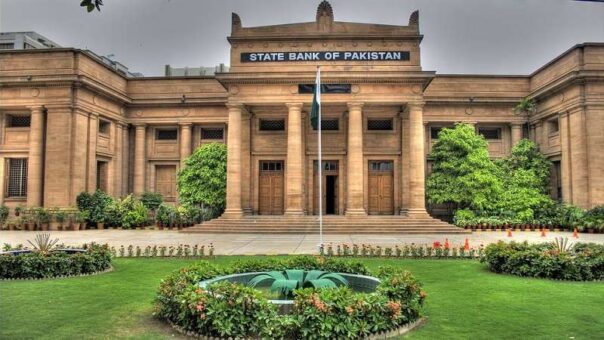Karachi, June 21, 2024 – The State Bank of Pakistan (SBP) announced on Friday that the country’s current account deficit has narrowed significantly to $464 million during the first 11 months (July – May) of fiscal year 2023-24. This marks a substantial improvement compared to the $3.76 billion deficit recorded in the same period of the previous year.
In May 2024, the current account posted a provisional deficit of $270 million, a sharp contrast to the revised surplus of $499 million in April 2024. The reduction in the deficit is attributed to several factors, including low economic growth, high inflation, increased exports, and higher remittances. Additionally, high interest rates and certain import restrictions have contributed to achieving a narrower current account deficit.
For May 2024, Pakistan’s exports of goods and services amounted to $3.69 billion, while imports were significantly higher at $5.93 billion. Remittances for the month stood at $3.24 billion, indicating robust support from overseas Pakistanis.
During the 11 months of FY24, Pakistan’s total exports of goods and services reached $35.81 billion. In contrast, imports during the same period totaled $57.63 billion. Worker remittances during this period were recorded at $27.1 billion, reflecting an 8% increase compared to the previous year.
The current account balance is a critical indicator for Pakistan, a country that heavily relies on imports to sustain its economy. A widening deficit can exert pressure on the exchange rate and deplete official foreign exchange reserves. The narrowing deficit is a positive development for the country’s financial stability.
Pakistan is currently engaged in discussions with the International Monetary Fund (IMF) for a new extended bailout to bolster the central bank’s foreign exchange reserves, which currently stand at $9.13 billion. These talks are crucial for ensuring financial support and stability for the cash-strapped economy.
The significant improvement in the current account deficit showcases the impact of strategic economic policies aimed at enhancing exports and managing imports. The rise in remittances has also played a vital role in narrowing the deficit, highlighting the importance of the Pakistani diaspora’s contributions.
As Pakistan continues its efforts to stabilize its economy, the improved current account figures offer a glimmer of hope. The ongoing negotiations with the IMF and the implementation of effective economic policies will be crucial in maintaining this positive trajectory and ensuring long-term financial stability for the country.
